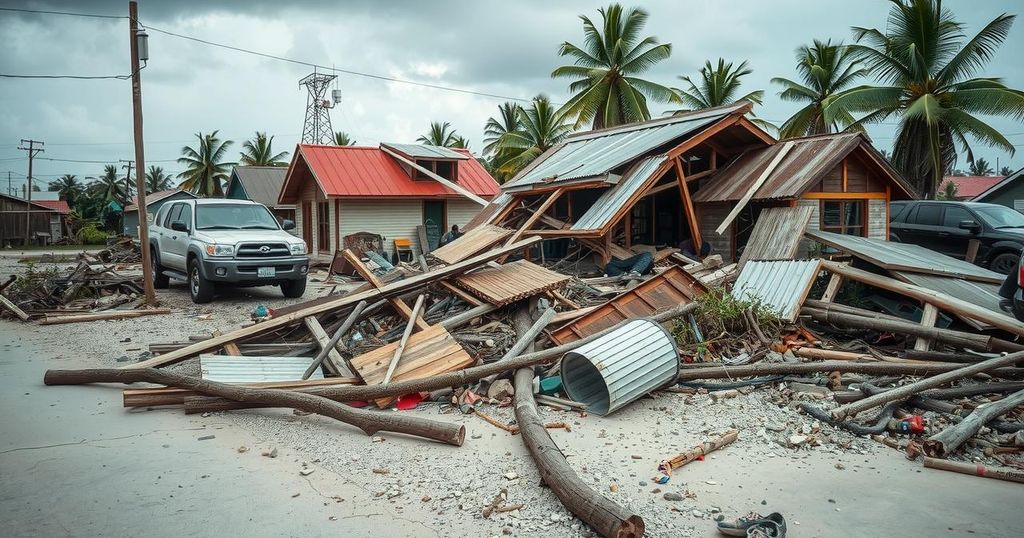Cyclone Chido Devastates Northern Mozambique, Leaving Over 120 Dead

Cyclone Chido has tragically claimed 120 lives and injured 868 people in northern Mozambique, affecting over 680,000 individuals. The cyclone, which made landfall on December 15, caused extensive flooding and destruction, with more than 140,000 homes damaged. Emergency shelters have been established for displaced persons, while the effects on the education and health sectors have been significant, prompting calls for enhanced preparedness against climate change-related disasters.
Cyclone Chido, a potent tropical cyclone, has wreaked havoc in northern Mozambique, resulting in a tragic death toll of 120 individuals, with 868 others injured, as reported by the national disaster relief agency. The cyclone struck primarily on December 15, leading to catastrophic weather conditions characterized by torrential rains, violent storms, and extensive flooding across the provinces of Cabo Delgado, Nampula, and Niassa. Approximately 622,610 people are reported to have been affected, with over 140,000 homes experiencing damage, and significant impacts on schools and healthcare facilities.
The destruction is particularly evident, with over 250 schools and 89 public buildings being notably affected. The Mozambican government has initiated emergency measures, creating two shelters to accommodate 1,349 displaced persons. Reports indicate that nearly 110,000 students’ education has been disrupted due to the cyclone’s devastation. Additionally, the National Institute for Disaster Risk Management and Reduction has pointed out the vulnerability of social infrastructure to climate change, emphasizing the urgent need for improved planning to mitigate such impacts in the future.
Cyclone Chido originated as a tropical depression over the southwestern Indian Ocean on December 5 and initially struck Mayotte, a French overseas territory, before making landfall in Mozambique. This cyclone serves as a stark reminder of the increasing frequency of extreme weather events linked to climate change, necessitating international humanitarian support to address the urgent needs of the impacted communities in Mozambique.
The recent event of Cyclone Chido brings to light the persistent challenges faced by northern Mozambique due to climate-related disasters. The country, situated in a region that is increasingly affected by extreme weather patterns, has experienced significant impacts on its infrastructure, health, and educational sectors. The responses to such disasters highlight the urgent need for resilient infrastructure and effective disaster management to safeguard communities against future occurrences. As climate change continues to escalate, the affected regions must adopt proactive measures to enhance their preparedness for similar catastrophic events.
The devastation caused by Cyclone Chido underscores the dire consequences of tropical cyclones in vulnerable regions like northern Mozambique. As reported, the cyclone has resulted in substantial loss of life and extensive damage to homes, schools, and healthcare facilities, affecting hundreds of thousands. This disaster reiterates the critical necessity for resilient infrastructure and effective disaster risk management plans to protect communities from the escalating impacts of climate change. Immediate humanitarian assistance is vital to support recovery efforts and rebuild the lives of those affected.
Original Source: english.mathrubhumi.com






